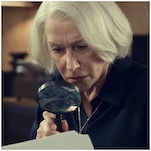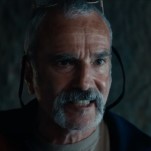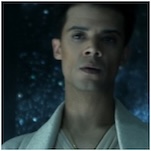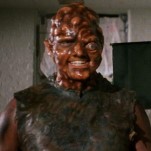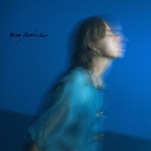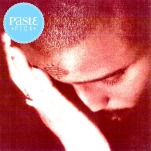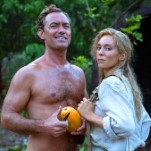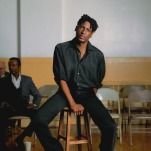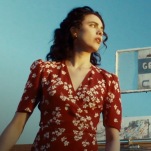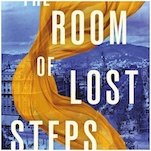Waitress
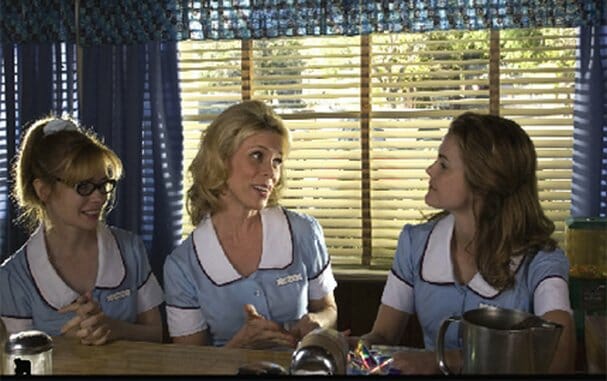
[Above: Adrienne Shelly, Cheryl Hines, Keri Russell]
Waitress
RELEASE DATE: MAY 2, 2007
Director/Writer: Adrienne Shelly
Cinematographer: Matthew Irving
Starring: Keri Russell, Nathan fillion, Cheryl Hines
Studio/Running Time: Fox Searchlight, 104 mins.
It was tragedy enough when actress/filmmaker Adrienne Shelly, best known for starring in two of Hal Hartley’s early features, was murdered last year at her New York apartment. But filmgoers are about to discover that part of this tragedy is just now arriving: the film that she wrote, directed and finished right before her death is a beautiful little comedy—earthy, unpredictable, sweet and a clear reminder of what we’ve lost.
Waitress takes place in a small-town café that only serves pies. It’s a “pie café.” To populate the local institution with regulars and employees, Shelly turned to television actors and tapped into a comic performance style built around efficient, snappy dialogue. Cheryl Hines from Curb Your Enthusiasm, Jeremy Sisto from Six Feet Under, Nathan Fillion from Firefly, Shelly herself and a newcomer named Andy Griffith—from some show whose name I can’t recall—all give fine, funny performances.
-

-

-

-

-

-

-

-

-

-

-

-

-

-

-

-

-

-

-

-

-

-

-

-

-

-

-

-

-

-

-

-

-

-

-

-

-

-

-

-

